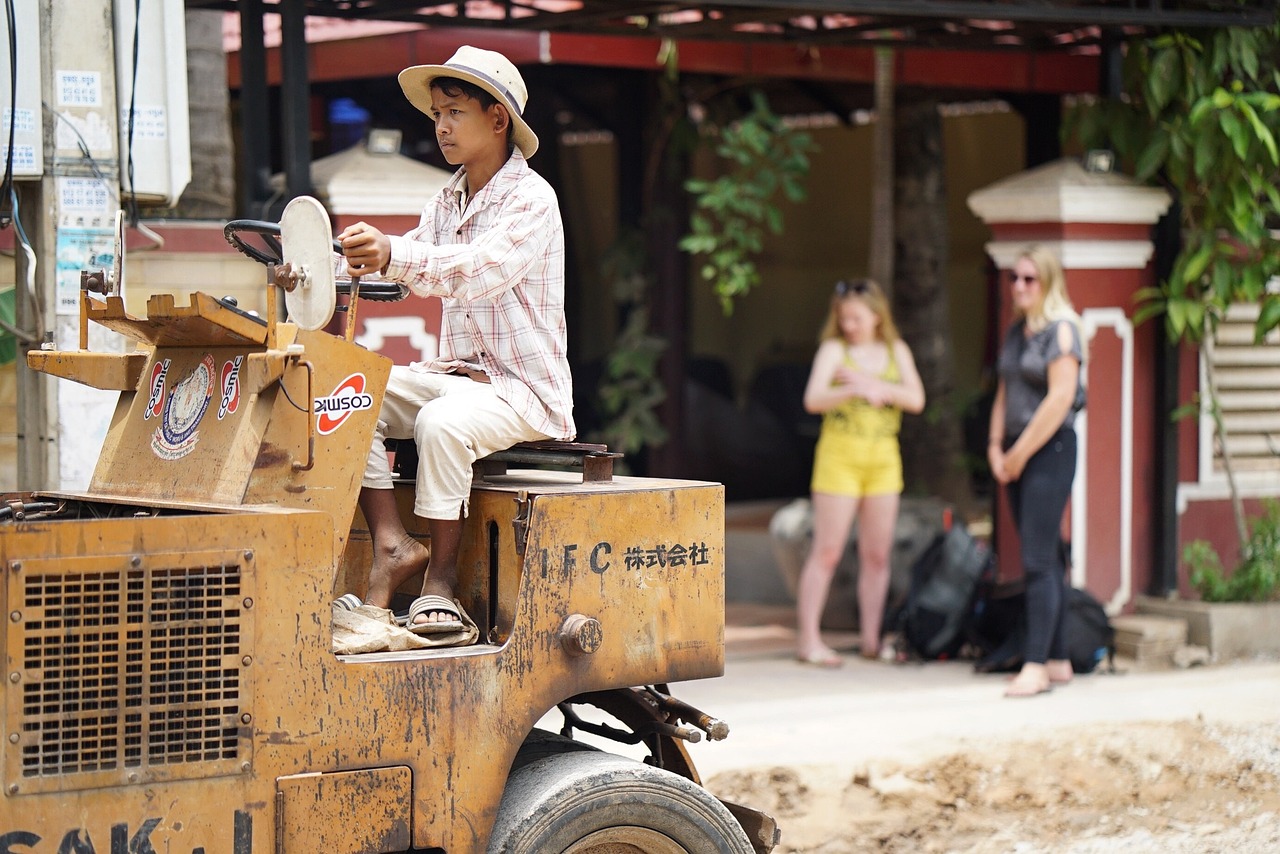Introduction
Cambodia is a vibrant country in Southeast Asia known for its rich history, stunning landscapes, and welcoming people. As more individuals choose to work in Cambodia, it is essential to understand how to manage finances and payments effectively. This article will provide detailed information on various aspects of managing finances while working in Cambodia, including banking options, currency exchange, tax obligations, and payment methods.
Banking Options
Having a local bank account is crucial for managing finances while working in Cambodia. It allows you to receive your salary, make payments, and access various banking services conveniently. There are several reputable banks in Cambodia, including:
- Acleda Bank: Offers a wide range of banking services and has an extensive branch network.
- Canadia Bank: Known for its reliable services and efficient online banking platform.
- ABA Bank: Provides modern banking solutions and has a user-friendly mobile app.
When opening a bank account, you will typically need your passport, a valid visa, and proof of address. It is advisable to compare the services and fees of different banks to find the one that best suits your needs.
Currency Exchange
The official currency of Cambodia is the Cambodian Riel (KHR), but the US Dollar (USD) is widely accepted and used in most transactions. It is essential to understand the currency exchange process to avoid unnecessary fees and ensure you receive fair rates. Here are some key points to consider:
- Exchange Rates: Exchange rates can vary between banks and money exchange counters. It is advisable to compare rates and choose a reputable establishment with competitive rates.
- ATMs: ATMs are widely available in major cities and tourist areas. They dispense both US Dollars and Cambodian Riels. However, be mindful of any ATM fees charged by your bank.
- Money Exchange Counters: Money exchange counters can be found in popular tourist areas. It is important to check the exchange rate offered and ensure that the counter is licensed and trustworthy.
Tax Obligations
Understanding your tax obligations while working in Cambodia is crucial to avoid any legal issues. Here are some important points to consider:
- Tax Residency: In Cambodia, individuals are considered tax residents if they reside in the country for 182 days or more in a calendar year. Tax residents are subject to personal income tax on their worldwide income.
- Personal Income Tax: The personal income tax rates in Cambodia range from 0% to 20%, depending on income levels. It is important to keep track of your income and ensure compliance with tax regulations.
- Tax Filing: Tax returns must be filed annually by March 31st for the previous tax year. It is advisable to seek professional advice or consult the General Department of Taxation for accurate and up-to-date information.
Payment Methods
When it comes to payment methods in Cambodia, there are various options available. Here are some commonly used methods:
- Cash: Cash is widely used in Cambodia, especially for small transactions and in rural areas where electronic payment options may be limited. Ensure you have sufficient cash on hand for daily expenses.
- Debit and Credit Cards: Major credit and debit cards are accepted in hotels, restaurants, and larger establishments in urban areas. However, it is advisable to carry cash for smaller businesses and markets.
- Mobile Payments: Mobile payment services such as Wing and Pi Pay are gaining popularity in Cambodia. These services allow users to make payments and transfers using their mobile phones.
Cambodia Image 1:

Housing and Rental Payments
When working in Cambodia, finding suitable housing is a key consideration. Whether you choose to rent an apartment, a guesthouse, or a house, it is important to understand the rental payment process. Here are some important points:
- Rental Contracts: Ensure you have a written rental contract that clearly outlines the terms and conditions, including rental amount, payment schedule, and any additional fees.
- Payment Methods: Most landlords prefer cash payments for rent. However, some may accept bank transfers or mobile payment services. Discuss the preferred payment method with your landlord.
- Security Deposits: It is common for landlords to request a security deposit equivalent to one or two months’ rent. Ensure you understand the terms for refunding the deposit at the end of the tenancy.
Health Insurance and Medical Payments
Health insurance is essential when working in Cambodia to ensure access to quality healthcare services. Here are some important considerations:
- Insurance Providers: Research and choose a reputable health insurance provider that offers comprehensive coverage in Cambodia.
- Medical Facilities: Familiarize yourself with the local medical facilities and hospitals that accept your insurance. It is advisable to choose hospitals with English-speaking staff.
- Payment Process: Depending on your insurance provider, you may need to pay for medical services upfront and submit reimbursement claims later. Keep all receipts and documents for reimbursement purposes.
Transportation and Commute Expenses
Getting around in Cambodia requires an understanding of transportation options and associated expenses. Here are some key points to consider:
- Taxis and Tuk-tuks: Taxis and tuk-tuks are popular modes of transportation in urban areas. Ensure you negotiate the fare before starting your journey or consider using ride-hailing apps like PassApp or Grab.
- Motorbike Rental: Renting a motorbike is a common option for expatriates in Cambodia. Ensure you have a valid driving license and understand the traffic rules and regulations.
- Public Transportation: Public buses and minibusses are available in major cities but may not be as convenient or reliable as other options. Research the routes and schedules before using public transportation.
Cambodia Image 2:

Shopping and Retail Payments
Cambodia offers a wide range of shopping opportunities, from local markets to modern malls. Here are some payment methods commonly used for shopping:
- Cash: Cash is the preferred payment method in many local markets and smaller shops. Ensure you have small denominations of both US Dollars and Cambodian Riels for convenience.
- Debit and Credit Cards: Major credit and debit cards are accepted in larger retail outlets, malls, and supermarkets. However, it is advisable to carry cash for small purchases and in local markets.
- Mobile Payment Services: Some retailers in Cambodia accept mobile payment services like Wing or Pi Pay. These services allow you to make payments using your mobile phone.
Education and School Fees
If you have children and are working in Cambodia, understanding the education system and school fees is essential. Here are some important considerations:
- School Options: Research and choose a school that aligns with your child’s educational needs. Cambodia offers a range of international schools and local schools.
- School Fees: School fees can vary depending on the institution and grade level. It is advisable to inquire about tuition fees, additional costs, and payment schedules.
- Payment Methods: Most schools in Cambodia prefer bank transfers or cash payments for school fees. Ensure you comply with the school’s payment policies and deadlines.
Leisure and Entertainment Expenses
Exploring Cambodia’s leisure and entertainment options is a must. Here are some payment methods commonly used for leisure activities:
- Entrance Fees: Many tourist attractions, museums, and historical sites in Cambodia charge entrance fees. These fees are typically paid in cash upon entry.
- Restaurant and Café Payments: Restaurants and cafes in Cambodia generally accept cash and major credit cards. However, it is advisable to carry cash for smaller establishments and street food vendors.
- Online Booking: Online booking platforms like Agoda, Booking.com, and Airbnb are popular for accommodation and leisure activities. They usually require credit card payments or online transfers.
Cambodia Image 3:

Conclusion
Managing finances and payments while working in Cambodia requires careful consideration and understanding of the local practices. It is essential to have a local bank account, be aware of currency exchange options, fulfill tax obligations, and choose suitable payment methods for various expenses. By following these guidelines, you can effectively manage your finances and enjoy your time in Cambodia.
References
- acledabank.com
- canadiabank.com.kh
- ababank.com
- gdt.gov.kh
- wingmoney.com
- pipay.com


